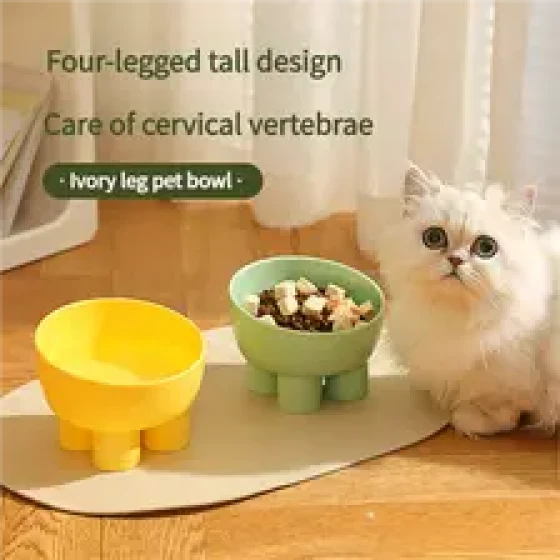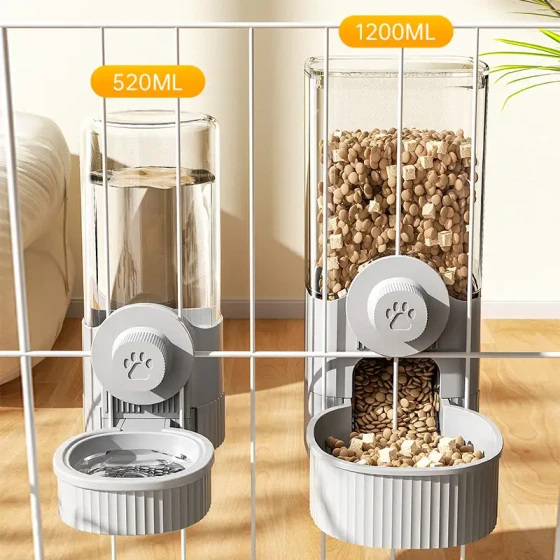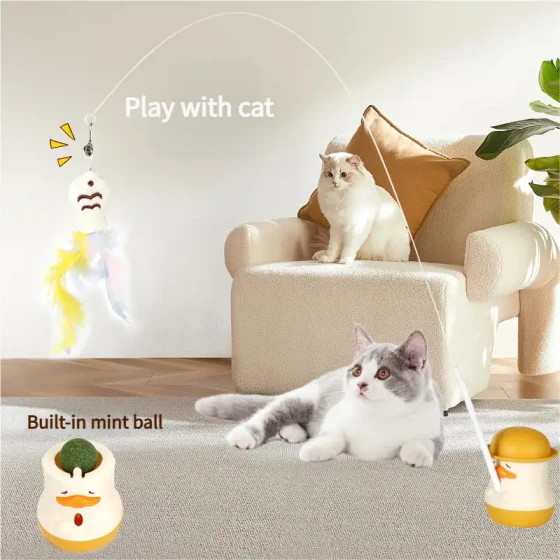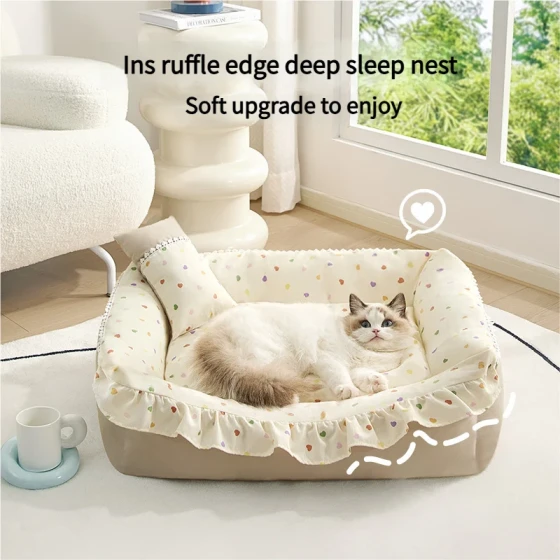What medicine is used for internal deworming of cats_Full guide to deworming medication
Alright, since we are going to talk about internal deworming for cats, we need to look beyond the surface and see what those “uninvited guests” lurking inside the little one's stomach really are, and how we can use “scientific weapons” to evict them. It sounds simple, but there are many tricks behind it; it’s not just about randomly giving a pill to the cat.
Raising cats is not easy, and internal deworming is an essential subject. It is related to the master’s gastrointestinal comfort and may even determine how long it can accompany you. Choosing the right medicine is like tailoring a "purification plan" for the cat, aiming to precisely hit the target while ensuring the safety of the master itself.

Parasites: Those invisible "hitchhiking" passengers
You might think your home cat is living a peaceful life, only lying by the window basking in the sun or chasing the cat teaser around the house? Don't be naive. Even an indoor “homebody cat” might inadvertently become a “breeding ground” for parasites. These ubiquitous little fellows can enter a cat’s body in many ways you can or cannot imagine, such as:
- A "greeting" from the shoe sole: Every day when we go out, the soles of shoes may pick up various parasite eggs. After coming home and doing some operations, the eggs might scatter on the floor and then get licked by a cleanliness-conscious cat.
- Contaminated food or water: Especially for owners who like to feed their cats raw meat and bones, the risk multiplies.
- Transmission through the mother: Kittens may get infected with internal parasites during nursing.
- Insect bites: For example, the dreadful heartworm is transmitted through mosquitoes.
- Eating intermediate hosts carrying parasites: Such as mice or other small animals. For cats who love hunting, this is a common pathway to get infected with tapeworms and other parasites.
There are many kinds of parasites, each with its own “methods of crime.” The most common internal parasites include roundworms, hookworms, tapeworms, whipworms (rare in cats), coccidia, Giardia, and the scary-sounding heartworm. They may cause vomiting, diarrhea, weight loss, anemia, poor appetite, and in severe cases, even threaten the cat’s life.
Anti-parasite "arsenal": Analysis of common deworming drug ingredients
Since the enemy is so cunning, our weapons must be equally serious. Common cat internal deworming medicines on the market usually contain the following key “troops”:
- Praziquantel: This is the "sharp weapon" against tapeworms. Tapeworms look like grains of rice, may cause the cat’s rear to be itchy, making it drag itself on the floor. Praziquantel works by affecting the tapeworm’s skin, causing paralysis so it can be digested or expelled through the cat’s digestive tract. It usually works well against tapeworms but has limited effect on other types of worms.
- Pyrantel Pamoate: Specially targets roundworms and hookworms. Roundworms look like thin Italian noodles, while hookworms attach to the intestinal wall to suck blood, causing anemia. Pyrantel works by paralyzing these worms, preventing them from clinging to the intestinal wall, so they are eventually expelled. It is ineffective against whipworms and tapeworms.
- Fenbendazole: A broad-spectrum “all-rounder,” effective not only against roundworms, hookworms, whipworms, tapeworms, but also some protozoa like Giardia and coccidia. Fenbendazole interferes with the parasite’s energy metabolism. Although its use in cats is “off-label” in some countries, it is safe and effective under veterinary guidance. It usually requires continuous administration for several days, such as 3-5 days, sometimes longer.
- Moxidectin / Emodepside: These are macrocyclic lactones, effective against nematodes (such as roundworms, hookworms, heartworms). Moxidectin is often used to prevent heartworm and can treat roundworms and hookworms. Emodepside is a relatively new ingredient effective against multiple nematodes, sometimes used in combination with praziquantel to achieve simultaneous internal and external deworming or broad-spectrum internal deworming.
Many commercial deworming products are compound combinations of the above ingredients, such as praziquantel combined with pyrantel, or emodepside combined with praziquantel. The advantage is targeting multiple common internal parasites at once, avoiding the hassle of frequent dosing.
"Choosing the right medicine" is more important than "using the strongest medicine"
Faced with a dazzling array of deworming medications, how to choose is key? This is not an arbitrary decision and needs to be analyzed in conjunction with the cat’s actual condition:
- Cat’s age and weight: Doses differ between kittens and adult cats, and some medicines are contraindicated for very young kittens. Always strictly follow the instructions or veterinary guidance to determine dosage.
- Cat’s living environment: Indoor-only cats have relatively lower risk of parasitic infection but not zero. Outdoor or free-roaming cats have higher risk of encountering various parasites (including those contracted by hunting), possibly requiring broader-spectrum deworming or more frequent dosing.
- Outdoor activity or raw feeding habits: These significantly increase the risk of parasite infection, especially toxoplasmosis, coccidia, and tapeworm infections via hunting. Such cats need special attention to their deworming plan.
- Whether fecal examination has been done: The most scientific approach is to first take the cat for a fecal exam to identify which parasites are present and then “prescribe accordingly.” This avoids blind medication and can detect protozoa (like coccidia, Giardia) that routine dewormers may not cover. In such cases, fenbendazole may be needed, but treatment plans should be consulted with a veterinarian.
- Form of medicine: Includes oral tablets, oral suspensions, and spot-on treatments (usually applied on the back of the neck, absorbed through the skin achieving internal/external or systemic deworming). The choice depends on the cat’s acceptance. Some cats resist tablets fiercely, so mixing liquid or spot-on may be easier.
How often to deworm? Frequency is not fixed
The frequency of deworming requires flexible mastery. There is no standard answer for all cats.
- Kittens: Due to immature immune systems and possible infection through milk, kittens need more frequent deworming. Usually recommended starting from 6-8 weeks of age, every 2-4 weeks until 6 months old, then switch to adult frequency.
- Adult cats:
- Indoor-only cats that do not go outside or eat raw food: Frequency can be relatively reduced, such as internal deworming once every 3 months.
- Cats that go outside, eat raw food, or live in mosquito-prone areas: Increased frequency is recommended, such as once per month, especially in areas where heartworm is prevalent.
- Pregnant and nursing mother cats: Must use medications under veterinary guidance; some drugs are safe during pregnancy or lactation but need caution to avoid passing through milk to kittens.
- Group housing environments: Where many cats live and have frequent contact, more strict and frequent deworming schedules are needed.
Medication tips and possible "minor incidents"
- Accurate dosing: Always strictly administer according to the cat’s weight and instructions or veterinarian’s guidance. Less is better than overdose, which can cause poisoning.
- Timing of medication: Most oral internal dewormers are recommended 2-3 hours after meals or between meals to reduce gastrointestinal irritation. Some medicines indicate they can be taken on an empty stomach or with food.
- Observe reactions: Some cats may have mild stress reactions after deworming like vomiting, diarrhea, lethargy. This is usually due to the drug effect or parasite death and dissolving, typically resolving in 1-3 days. Temporary fasting or probiotic feeding under vet supervision may help regulate the gut. But if symptoms are severe or persistent, immediate veterinary care is necessary.
- What if you see worms? Seeing live or dead worms in vomit or feces after deworming is normal and means the medicine worked. No need to panic.
- Don’t be your own doctor: Especially important! Although many dewormers can be bought over the counter, the most reliable approach is consulting a professional veterinarian. They can recommend the most appropriate medicine and deworming plan based on the cat’s specific situation (breed, age, weight, health, living environment) and guide dosage, administration methods, and handling possible side effects.
Final words
Internal deworming for cats is less treatment and more a part of routine health management. Just as humans require regular check-ups, regularly deworming cats shows responsibility and protects the health of the family (many parasites are zoonotic).
So, don’t obsess over "which medicine is the strongest." The real advanced play is understanding different drug characteristics, combining with your own cat’s specific situation, and formulating a scientific, sustained deworming plan under vet guidance. After all, seeing your master eat well, stay healthy, and happily cuddle and play is our biggest pride as pet owners, isn’t it?
Remember, raising cats is a study in itself, keep learning as you go, and don’t let those invisible parasites become a potential threat to your and your cat’s happy life.





